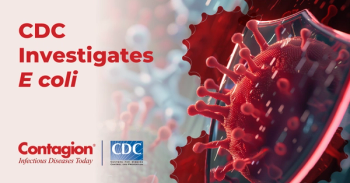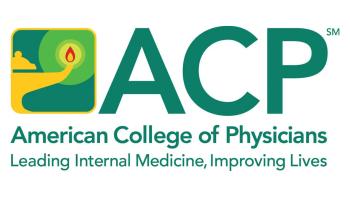
Building a C Diff Community and Advocating for Survivors and Caregivers
The Peggy Lillis Foundation (PLF) for C diff Education & Advocacy has been working to help people affected by the healthcare associated infection and getting involved with public advocacy including their support of the prospective antibiotic-related law, the Pasteur Act.
In April, the Peggy Lillis Foundation (PLF) for C diff Education & Advocacy had its annual National C diff Advocacy Summit in Washington DC. The
One of the interesting components for this year’s summit, according to foundation Cofounder and Executive Director Christian John Lillis, was having 2 speakers who were C diff survivors and clinicians, so they were able to offer the uniqueness of both perspectives. For anyone interested in viewing the summit, they can do so through the foundation’s
Lillis had a career in non-profits prior to cofounding the foundation with his brother, Liam. Before their mother contracted C diff and passed away from it a short time later, they had never heard of the infection.
For a majority of people who have an acute C diff infection, their symptoms resolve with antibiotic treatment. However, an estimated 15% to 30% of patients have a recurrence of infection.1 A second recurrence rate of 40% has been reported among patients with a resolved first recurrence.1 And unfortunately, a subset of these patients will experience additional recurrences, which can become a revolving door of medical interventions, diminished quality of life, and severe health consequences.
Despite this, much of the general public is not aware the condition even exists. Lillis says a lot of what they do is education, and they brought that to Washington DC during the foundation’s Lobby Day directly following their summit in April.
“We went and met with our senators and congress people, and we talked to them about C diff; it has gotten better but a majority of them have never heard of it or their staff,” Lillis explains of the discussions in Congress. “It’s an opportunity to educate them about it—to help them understand the disease.”
One of the things Lillis enjoys the most about this day is seeing C diff survivors and caregivers who may have trepidations about going in and speaking with congressional members, and how they end up enjoying the experience and as Lillis says, “come alive,” when speaking with them.
Along with awareness, the foundation has been promoting the passage of the Pasteur Act. For the uninitiated, the proposed legislation is designed to promote greater antibiotic development as well as stewardship to prevent multidrug resistance.
“If we don’t have effective antibiotics, there goes open-heart surgery, there goes chemotherapy, there goes bone marrow transplants. It is an area where we need the government to get involved.”
“We are really drawn to the stewardship component of it, but we’re also drawn to the fact that the antibiotic pipeline—not just in the US but globally in terms of drug development—is very sclerotic.”
Lillis says that although the infection has not been designated as treatment resistant, he says there are some smaller studies suggesting it could be.
Contagion spoke with Lillis about their work in advocacy and what activities and initiatives they are involved in including their See C diff campaign they do during the month of November (C diff Awareness Month).
Reference
1. Song JH, Kim YS. Recurrent Clostridium difficile Infection: Risk Factors, Treatment, and Prevention. Gut Liver. 2019;13(1):16-24. doi:10.5009/gnl18071
Newsletter
Stay ahead of emerging infectious disease threats with expert insights and breaking research. Subscribe now to get updates delivered straight to your inbox.































































































































